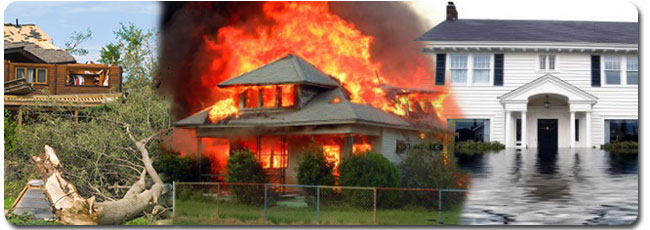Shedding a home to a fire, quake, twister, or an additional calamity is a frequently unexpected and overwhelming occasion. Despite having appropriate calamity prep work, no home owner is ever before completely planned for such a residential property loss. However, there are several methods for house owners to stay clear of an also larger loss. Insurance adjusters see one of the most costly and also typical errors made by property owners, as well as they understand just how to avoid them. The following are recommendations we collected from the viewpoint of numerous insurance adjusters.

Without Delay Submit a Residential Property Loss Insurance Claim
Contacting your insurance provider asap is constantly best, as some insurance coverage have specific policies, limitations, as well as timelines. Obtain the case on record as well as understand what will be covered. It is now time to obtain every one of the information to aid ensure a precise negotiation.
Be Organized
It is best to maintain an upgraded stock of a home’s components in a fireproof secure. See our Home Supply short article for pointers as well as information.
Be sure to document as well as evaluate all personal home that had actually been damaged or shed. If possible, take video every day from the time of the loss up until the insurer gets here.
Lastly, document all interactions with the people associated with the claim. After each communication, send out an e-mail describing the conversation points and requesting confirmation or additional explanation.
Do Not Disregard Salvageable Products
For any type of home appliances or furniture, identify whether salvaging is possible. If something has actually not had fire or water damage, it can likely be recovered. Conserving also 1 or 2 items reveals an insurer a strong initiative to maintain and secure residential or commercial property, which is a laid out duty of a home owner in an insurance coverage.
Obtain Adjusters to Check Simultaneously
If multiple policies cover the residence, there will certainly be greater than one adjuster seeing. Adjusters may have varying suggestions regarding locations of the home where damages insurance coverage overlaps. The best means to solve this concern is to have all adjusters evaluate the building at the same time.
Follow the Three “Never Ever” Rules About Service providers
For any catastrophe that strikes a whole area or town, scam artists or corner-cutting specialists will inevitably appear. It is constantly best to ask your insurance agent for service provider referrals. Bear in mind these 3 regulations:
Never ever make an upfront settlement to any kind of service provider.
Never ever work with a specialist from out of the area.
Never ever have the professional’s name included on an insurance policy claim check.
There are a number of resources to verify a professional’s track record such as the Better Business Bureau and also the National Organization of State Service Providers Licensing Agencies.
Recognize the Policy’s Language
To be far better gotten ready for a property loss, constantly speak to your insurance policy agent as well as upgrade insurance coverage as needed yearly. To fully recognize the small print of a plan, consider speaking to a lawyer.
The insurance claim process can be daunting, nonetheless, taking the needed time as well as paying focus to information can greatly aid in quickening the recuperation and also getting involved in comfortable housing choices.
Also with correct disaster preparation, no home owner is ever before fully prepared for such a home loss. Insurance policy insurers see the most typical as well as pricey mistakes made by homeowners, as well as they recognize just how to prevent them. If possible, take video every day from the time of the loss up until the insurer gets here.
Conserving even one or two products shows an adjuster a solid effort to preserve and secure residential property, which is a detailed task of a property owner in an insurance coverage plan.
The finest means to address this problem is to have all insurance adjusters inspect the residential or commercial property at the same time.